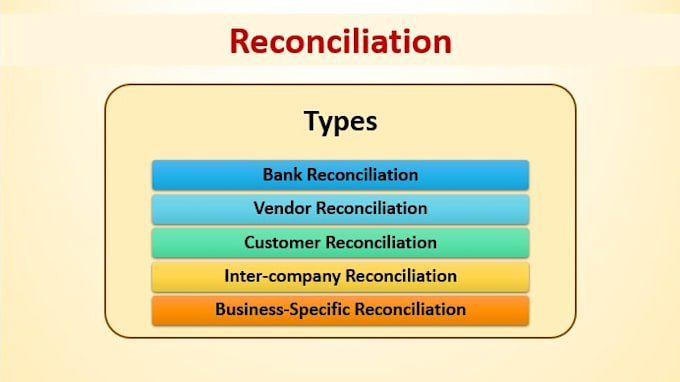Spiritual Wellness: Understanding Its Essential Components
What’s spiritual wellness?
Spiritual wellness represent our ability to establish peace and harmony in our lives through a consistent set of values, beliefs, and principles that provide purpose and direction. Unlike religious practice, which may be one expression of spirituality, spiritual wellness encompass a broader connection to something greater than ourselves and the ongoing search for meaning in human existence.
At its core, spiritual wellness involve develop an appreciation for the depth and expanse of life. It encourages question, exploration, and the development of personal values that guide behavior anddecision-makingg. When spiritually intimately, individuals typically experience a sense of purpose, peace, and connection that extend beyond material concerns.
Key components of spiritual wellness
Spiritual wellness manifest through several interconnected dimensions. Understand these components help identify what accurate spiritual wellness look like in practice.
Connection to something larger
A fundamental aspect of spiritual wellness involve recognize and nurture a connection to something beyond oneself. This might mean:
- Develop a relationship with a higher power or divine presence
- Feel connected to nature and the universe
- Experience unity with humanity as a whole
- Recognize patterns and purpose in ostensibly random events
This connection provide context for personal experiences and help individuals find meaning evening during difficult circumstances. Those with strong spiritual wellness frequently report feel guide or support by this larger connection, quite than isolated or alone in their struggles.
Clear personal values and ethics
Spiritually intimately individuals have developed and continually refine their personal value systems. These values:
- Guide daily decisions and behavior
- Help determine priorities and life direction
- Provide a framework for ethical choices
- Create consistency between beliefs and actions
Instead, than merely adopt external value systems without question, spiritual wellness involve thoughtful consideration of what matter virtually. This oftentimes lead to live with greater integrity as actions align with deep hold beliefs.
Sense of purpose and mean
Spiritual wellness include a develop sense of purpose that make life meaningful. This manifests as:
- Understand one’s unique contributions to the world
- Find significance in daily activities
- Recognize how personal actions affect others
- Pursue goals align with deeper values
This sense of purpose provide motivation and resilience, specially during challenging times. Kinda than view difficulties as meaningless suffering, those with spiritual wellness oftentimes find growth opportunities or lessons in hardship.
Inner peace and harmony
A spiritually well person typically experience greater inner peace and emotional balance. This includes:
- Accept what can not be change while work to improve what can
- Find calm amid external chaos
- Maintain perspective during stressful situations
- Practice forgiveness of self and others
This inner harmony doesn’t mean avoid negative emotions but quite process them in healthy ways that lead to growth quite than becoming stick in resentment, fear, or anger.
Accurate descriptions of spiritual wellness
When consider what accurately describe spiritual wellness, several key characteristics emerge that distinguish authentic spiritual health from misconceptions or imbalance approaches.
Balance between reflection and action
True spiritual wellness balance introspection with engagement in the world. It involves:
- Regular reflection through practices like meditation, prayer, or journal
- Apply spiritual insights to everyday decisions and relationships
- Serve others as an expression of spiritual values
- Find sacred meaning in ordinary activities
This balance prevent spiritual practice from become either strictly theoretical or senselessly ritualistic. Spiritually intimately individuals don’t upright contemplate meaning — they live it out through actions that align with their values.
Growth orient perspective
Spiritual wellness embrace continuous growth quite than claim perfect enlightenment. This includes:
- Openness to new insights and understanding
- Willingness to question and refine beliefs
- View challenges as opportunities for development
- Practice humility about one’s spiritual knowledge
This growth mindset distinguish spiritual wellness from rigid dogmatism. Spiritually healthy individuals recognize that their understanding evolve over time and remain open to deeper insights.
Respect for diverse spiritual paths
Authentic spiritual wellness acknowledge multiple valid approaches to spiritual development. This involves:
- Respect others’ spiritual beliefs yet when different from one’s own
- Recognize common values across spiritual traditions
- Learn from diverse perspectives
- Avoid judgment of different spiritual practices
This respect stem from understand that spiritual truth oft transcend any single tradition or perspective. Spiritually intimately individuals can maintain their own convictions while honor others’ journeys.
Integration with other wellness dimensions
Spiritual wellness doesn’t exist in isolation but connect with other aspects of well bee. This integrationincludese:
- Recognize connections between spiritual beliefs and physical health choices
- Apply spiritual values to emotional regulation
- Build relationships that reflect spiritual principles
- Make career and financial decisions align with deeper values
This holistic approach prevent compartmentalize spirituality from everyday life. Alternatively, spiritual wellness infuses and enhance all dimensions of well bee.
Common misconceptions about spiritual wellness
Understand what spiritual wellness is not helped clarify what accurately describe this dimension of wellbeing.
Not solely religious practice
While religious involvement can contribute to spiritual wellness, they’re not synonymous. Spiritual wellness:
- Extends beyond adherence to religious doctrines
- Can be developed by those who identify as religious, spiritual but not religious, or secular
- Focus on personal meaning making quite than institutional affiliation
- Values authentic connection over ritualistic obligation
This distinction allow for diverse expressions of spirituality while recognize that organized religion provide one valuable pathway for many people.
Not spiritual bypassing
Authentic spiritual wellness differ from spiritual bypassing — use spiritual ideas to avoid deal with emotional difficulties. True spiritual wellness:
- Acknowledge and process painful emotions quite than deny them
- Addresses real world problems alternatively of escape into spiritual abstractions
- Recognize the need for both spiritual practice and practical action
- Integrate spiritual insights with psychological understanding
This honest approach prevents use spirituality as an avoidance mechanism and alternatively employ spiritual resources to face life’s challenges straightaway.
Not self-absorption
Spiritual wellness extend beyond self focus development to include compassionate engagement with others. It involves:
- Recognize interconnection with all beings
- Develop empathy and compassion for others’ suffering
- Take action to reduce harm and promote well bee
- Find mean through service and contribution
This outward focus distinguishes spiritual wellness from narcissistiself-improvementnt projects that simply enhance ego gratification.
Assess your spiritual wellness
Determine your current level of spiritual wellness involve honest self reflection. Consider these questions:

Source: wntoknow.com
- Do you have a sense of purpose that guide your life decisions?
- Can you articulate your core values and how they influence your choices?
- Do you regularly engage in practices that nurture your spiritual life?
- Can you find meaning evening during difficult circumstances?
- Do you feel connected to something larger than yourself?
- Are your actions mostly consistent with your spiritual beliefs?
- Do you make time for reflection on deeper questions of meaning?
- Can you respect spiritual perspectives different from your own?
These questions help identify areas of strength and opportunities for growth in your spiritual wellness journey.

Source: pinterest.com
Practices that enhance spiritual wellness
Develop spiritual wellness involve intentional practices that nurture connection, meaning, and purpose.
Mindfulness and meditation
Regular mindfulness practice develop present moment awareness that can deepen spiritual connection. Benefits include:
- Increase awareness of thoughts and emotions without judgment
- Greater appreciation for everyday experiences
- Reduced reactivity to stressors
- Enhanced ability to notice spiritual insights
Evening brief daily meditation periods can importantly impact spiritual awareness over time.
Reflection and journaling
Write reflection help process experiences and identify patterns of meaning. Effective approaches include:
- Record meaningful moments and insights
- Explore questions about purpose and values
- Note synchronicities or patterns that feel significant
- Track spiritual growth over time
This practice create a dialogue with yourself that can reveal deeper understanding not forthwith apparent in daily life.
Connection with nature
Many people experience spiritual renewal through intentional time in natural settings. This might involve:
- Regular walks in natural environments
- Gardening or plant care
- Observe natural cycles and seasons
- Wilderness experience that inspire awe
Nature oftentimes provide perspective, calm the mind, and evoke a sense of connection to something larger than oneself.
Service to others
Contribute to others’ well bee frequently enhance spiritual wellness through:
- Volunteer work align with personal values
- Random acts of kindness
- Support community initiatives
- Mentoring or teach others
Service shifts focus from self concern to broader connection and oftentimes provide profound meaning and purpose.
Spiritual reading and study
Engage with spiritual texts and teachings expand understanding and provide new perspectives. This includes:
- Read sacred texts from various traditions
- Study philosophy and ethics
- Learn about different spiritual practices
- Engage with poetry and literature that explore mean
This intellectual engagement complements experiential spiritual practices and help articulate personal beliefs more intelligibly.
The impact of spiritual wellness on overall health
Research progressively confirm connections between spiritual wellness and other health dimensions:
Physical health benefits
Spiritual wellness correlate with several physical health advantages:
- Lower blood pressure and stress hormones
- Improved immune function
- Better sleep quality
- Healthier lifestyle choices
These benefits potential stem from reduced stress, greater meaning, and lifestyle choices align with spiritual values.
Mental health improvements
Spiritual wellness provide psychological resources that support mental health:
- Increase resilience during difficulties
- Lower rates of depression and anxiety
- Greater life satisfaction
- More effective cope mechanisms
The perspective and meaning provide by spiritual wellness create psychological buffers against life’s inevitable challenges.
Social connection enhancement
Spiritual wellness frequently strengthens relationships through:
- Share values and community with like-minded others
- Greater empathy and compassion
- Improved forgiveness and conflict resolution
- Deeper, more meaningful interactions
These social connections far reinforce well bee through community support and belong.
Cultivate spiritual wellness in daily life
Integrate spiritual wellness into everyday existence make it sustainable instead than compartmentalized:
Morning and evening rituals
Bookend days with brief spiritual practices establish continuity:
- Morning intention setting or prayer
- Evening gratitude reflection
- Brief meditation at day’s beginning and end
- Read inspirational passages
These consistent touchpoints maintain spiritual awareness throughout busy periods.
Mindful transitions
Use transitions between activities as mindfulness opportunities:
- Take three conscious breaths before enter meetings
- Concisely acknowledge purpose when start new tasks
- Express gratitude when finish projects
- Set intentions during commutes
These micro practices maintain spiritual connection without require additional time.
Create sacred space
Designate physical environments that support spiritual wellness:
- A meditation corner with meaningful objects
- Natural elements like plants or stones in work areas
- Visual reminders of values and purpose
- Clutter-free spaces that promote peace
These environmental cues support ongoing spiritual awareness throughout daily activities.
Conclusion: the ongoing journey of spiritual wellness
Spiritual wellness represent a continuous journey quite than a destination. It accurately describes a dynamic process of growth, connection, and meaning making that evolve throughout life. The spiritually well person maintain openness to new understanding while live systematically with their deepest values.
What accurately describe spiritual wellness is this integration of belief and practice — a live experience of connection to something greater, express through purposeful action, compassionate relationships, and inner peace. This dimension of wellness provide a foundation that enhance all other aspects of health and create resilience for life’s inevitable challenges.
By recognize the authentic characteristics of spiritual wellness and distinguish them from misconceptions, individuals can more efficaciously nurture this essential aspect of human flourishing. The journey toward spiritual wellness offer not lonesome personal benefits but contribute to greater compassion, understanding, and meaning in our shared world.



